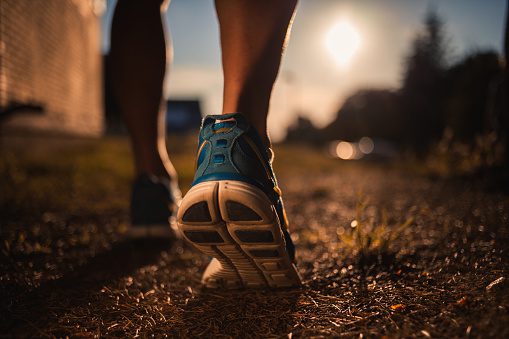Regardless of path working’s fame as an exercise that helps broad inclusion, issues over security and a scarcity of illustration stay obstacles for racially various runners, in line with a report launched this week by the U.S.-based Working Business Range Coalition (RIDC) and Bently College in Massachussetts.
For the examine—Racial Range in Path Working: Understanding the underrepresented expertise in path and street working and racing—researchers surveyed white and BIPOC (Black, Indigenous and other people of color) runners within the U.S. who run not less than as soon as a month on trails or roads. The objective was to discover limitations to entry, security and inclusion throughout path races and unorganized participation, unaddressed product wants and comparisons to road-running experiences.
The examine discovered, partially, that whereas BIPOC runners discover trail-running tradition to be pleasant and fewer aggressive than street working, many respondents discovered the tradition to be “cliquey.” The survey additionally confirmed that whereas white and BIPOC runners use related language to explain path working—with respondents throughout the board characterizing it as “enjoyable,” “adventurous” and “enjoyable”—the phrase “inclusive” was ceaselessly utilized by white runners however almost absent from BIPOC language.

Elements shaping emotions of exclusion recognized within the report embody a scarcity of variety in path working—respondents characterised the trail-running scene as “extraordinarily white,” from individuals to race workers to sponsors—and the perceived prohibitive value of trail-running clothes, gear and occasions.
The examine discovered that whereas BIPOC and white runners alike reported feeling a decrease sense of security on roads in comparison with trails throughout unorganized participation, BIPOC runners report feeling “considerably” much less secure than white runners throughout each path and street races—80 per cent of white respondents mentioned they at all times really feel secure at path races, in comparison with 56 per cent of BIPOC runners. Concern of untamed animals, working alone and getting misplaced had been recognized as the highest security issues for BIPOC runners throughout path races.

The authors supply a number of suggestions for making path races extra inclusive for BIPOC runners. These embody supporting working golf equipment led by BIPOC runners, sharing schooling concerning the wildlife that surrounds native trails (together with information concerning the odds of an encounter and security measures to take), contemplating applications to scale back the fee for runners who want it, extending cut-off instances for path races, and having a greater variety of pacing teams to make sure no runner is left behind.
Making path working extra inclusive additionally requires clothes and gear manufacturers to have interaction with BIPOC runners on product improvement, say the authors, who notice present choices are too slim by way of match, fashion and cultural relevance.
The examine was certainly one of three launched by RIDC and Bently College to coincide with Juneteenth on June nineteenth, commemorating the day that slaves in Galveston, Texas had been advised of their emancipation. The others centered on BIPOC illustration in management roles within the working business and selling broader inclusion in working. All three research might be accessed right here.